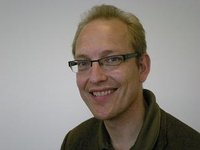New management of the International Network of Humanistic Doping Research
by Verner Møller, Aarhus University, Denmark
Since the INHDR was established ten years ago much has changed in and outside the field of doping and anti-doping. The impact of the Internet has grown immensely. New social media has changed the way we communicate and stay in touch. Elite athletes have been forced to adapt to a surveillance system of unprecedented proportions. Owing to technological progress the wonder tool ADAMS has appeared, allegedly to make self-reporting easier for athletes in the registered testing pool. Some athletes – typically older ones – have complained about this new system, which they find burdensome. However, it would be naïve to think that it would be abandoned just because a group of athletes find this new technology more time consuming and annoying than the preceding system with whereabouts information sheets to fill out in hand and where updates should be made by fax, email or regular mail. The only hope for those who struggle with ADAMS is that a more user-friendly system will be developed which can replace the then outdated ADAMS system. It is impossible to turn back the clock.

New media's life-changing power is irrefutable. In 1964 Marshall McLuhan pinpointed the condition with prophetic vision when he claimed: “The medium is the message”. Evidence to this can be found in every institution. In universities it has been experienced by the introduction of technology deployed to monitor academic output and research quality in an attempt to secure that public money is not wasted. Everybody with a bit of knowledge about research knows that it is impossible to measure research quality by citation indexes or diligence by number of words or articles published. Nevertheless, since we now have the technology in place to measure something that has to do with research, political wisdom has it that it is better to measure something than nothing – regardless of how futile the measuring may be. Through the everlasting pedagogical method of stick and carrot academics are taught to adapt. As a result the political wish to form a competitive environment where universities’ performances can be objectively evaluated and compared nationally and internationally begin to materialise. Those who do not adapt easily –typically older academics – will be off the pace and may over time become futile. Since one cannot successfully work against the spirit of time the wise strategy is to follow it.
In light of this it is about time to hand over the management of the network to younger colleagues with new ideas and who are more familiar with the new media and their potential and a vision to modernize the network so that it does not stagnate in inertia. So from today Ask Vest Christiansen, Aarhus University and John Gleaves, California State University Fullerton will lead the network.
This change of management does not mean that Aarhus University has decreased its commitment to the network. It is true that the restructuring process at Aarhus University has meant that Sport Science has been moved to a new Faculty where it has been merged with the Department of Public Health and thus has lost its independent status. But the Department of Public Health’s Section for Sport will still accommodate and support the network.